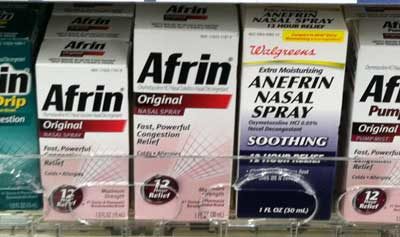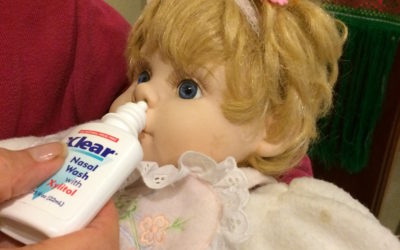What is Sinusitis?
Sinusitis is caused by the tissue lining of the sinus cavity becoming swollen or irritated. There are six sinus cavities that connect to the nasal passages and when healthy, they are filled with air. If viruses, fungi, or bacteria get into these cavities from their homes in the nose and are able to find a place to hold on an infection can begin.
This happens mostly when there are structural problems like a deviated septum or cleft palate, or environmental challenges like the sick, runny nose children that teachers have to deal with every school day, or flight attendants whose normal defenses are severely compromised by the extremely low humidity in commercial airplanes.
The most common symptoms of sinusitis include:
- Nasal congestion
- Facial pressure or pain
- Nasal Discharge
- Upper teeth ache
- Decreased sense of taste and/or smell
- Fever
- Fatigue
- Headache
Types of Sinusitis
There are three different degrees of sinusitis: acute, subacute, and chronic. Acute sinusitis is often caused by a cold, bacteria, fungal infection, or allergy. Generally, acute sinusitis last for up to 4 weeks. Subacute sinusitis progresses to set in if acute sinusitis has not cleared and can linger for 4 to 12 weeks. Chronic sinusitis lasts at least 8 to 12 weeks (or is reoccurring) and can be caused by an infection, a deviated septum, or growths in the sinuses (nasal polyps).
Doctors and pharmacists often recommend nasal decongestant sprays for symptom relief. To understand the problems associated with this and nasal irrigation read our post on The Nose is a Nidus. Unfortunately, sinusitis generally lasts much longer than the maximum recommendation for use (typically up to 5 days of use). Most nasal decongestant sprays contain potent active ingredients which can further irritate the sinuses and nasal passages. After extended use, the positive effects begin to lessen with each dosage, causing the person to medicate more frequently. These powerful chemical ingredients can further damage your tissues, and after time, do more harm than good. Doctors also prescribe antibiotics to treat sinusitis, however recently the CDC issued a warning about overprescribing antibiotics and instead suggested using sinus irrigation.
Sinusitis can be uncomfortable and painful, so we recommend use a natural saline nasal spray containing xylitol. These sprays are safe for the whole family to use, and won’t cause rebound congestion or addiction, meaning you can use them as often as needed.
Related Articles
Nasal xylitol and asthma study
By Dr. Lon Jones I was beginning to look at asthmat 18 years ago, but was preempted when my hospital and clinic closed. Much of asthma is triggered by pollutants in the upper airway that the crippled primary defense of muco-ciliary clearance cannot handle. Now that we...
Indoor air pollution solutions
Breathing Easy Indoors By Jane Wooley. Think pollution is all about filthy air outdoors? You’d be wrong. In recent years, more and more scientific evidence has shown that it’s actually the air inside our homes and buildings that are the most seriously polluted....
How Xylitol Can Help Fight Fall Allergies
Many of us suffer from allergies when the seasons change. So what are the differences between spring and fall allergies, and how can you help fight fall allergies this year? Which Allergies Occur in the Spring? The most common spring allergy is tree...
Dangers of Afrin Nasal Spray
Afrin is one of the most popular nasal sprays on the market. Afrin and other similar nasal sprays work by stimulating the receptors in the smooth muscle of the blood vessels of the nose. It causes these blood vessels to constrict, which reduces nasal...
How to Fight Summer Allergies This Year
Allergies don’t just end with when spring changes to summer, unfortunately. Summertime weather means picnics, lake trips, hiking, and just generally enjoying the outdoors. But having summer allergies can throw a curve on your warm weather fun. There are two main...
Saline Nasal Spray for Babies
What’s the best and safest saline nasal spray for babies and infants? You might be wondering how to clear a baby’s nose? Babies are much more sensitive than adults or even children, so can the same practices be used? According to parents.com the best way...









